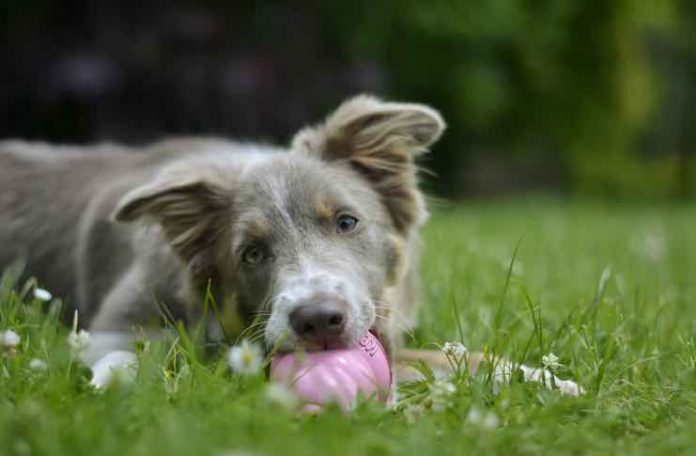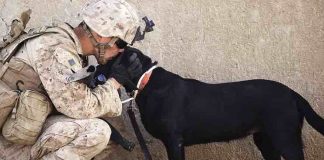If your pup is chewing through your beloved furniture or personal belongings, this behavior may actually be a symptom of a much deeper issue. As a pet owner, it’s up to you to figure out what’s troubling your pet as well as learn how to discipline them properly.
That said, solving this may be easier said than done. It’s no wonder why there are brands selling sturdy wholesale dog beds to help pet owners get around their pup’s chewing problem. If you’re at your wits’ end because your fur baby is treating everything in your home as their personal chew toy, don’t worry. Read on to learn more about what causes dogs to chew excessively, as well as what you can do to discourage this habit.
What Is Causing Your Pup to Chew So Much?
Before anything else, it’s important to know that chewing is a completely natural process for dogs. In the wild, dogs chew on everything from bark to bones to help them sharpen their teeth, exercise their jaws, and engage their minds. It’s when they start gnawing too much and too often that it becomes an issue. To properly solve your dog’s chewing problem, you need to identify what’s causing it. Here are some potential causes to look out for:
Separation Anxiety
In general, dogs tend to chew on anything they can get their paws on when they experience unfamiliar stimuli that makes them feel stressed or anxious. This is because the act of chewing helps them relieve their feelings of discomfort. Dogs who aren’t used to being left alone may also act out in other ways such as whining, barking, and urination. These behaviors, when accompanied by destructive chewing, are indicators that your dog may be suffering from separation anxiety.
Weaning Them Too Early
Destructive chewing can also occur if your pup is weaned too early—before they are seven to eight weeks old, to be specific. They may develop compulsive behaviors such as fabric sucking and circling and may become hostile towards other dogs or people. Compulsive dogs, when left untreated, can be harder to manage over time.
Malnutrition
Malnutrition can also cause your pup to start chewing more often than usual. It’s a basic survival mechanism for dogs, as chewing helps them satiate their hunger until they can find their next meal.
Should you suspect that any of the above may be the issue, consult a professional ASAP. A professional has the knowledge and experience necessary to diagnose and solve the potential problem. For instance, a vet can help you design a meal plan to help Fido get the nutrition he needs, while a dog behavior expert can train your pup to stop their compulsive habits.
In the meantime, though, there are still some things that you can do to help your pup overcome their chewing habit.
How Can You Stop Your Dogs from Chewing Everything in Sight?
Generally speaking, you’ll want to keep your dog engaged with an assortment of chew toys, as this will allow them to get rid of excess energy while also sparing your belongings in the process. Here are some tips you should keep in mind:
Choose the Right Chew Toy
When buying a chew toy for your pup, make sure it can withstand countless hours of chewing and mauling, all while still being engaging enough for your pet. With that in mind, choose a toy made of nylon or hard rubber, as these materials can withstand the punishment your dog may put it through.
Pick Chew Toys That Are Specifically Made for Dogs
Whenever you can, go for toys that are specifically designed for dogs. Avoid plush toys made for children, as they weren’t built to stand up to a pup’s aggressive handling. If you give one to your fur baby, they may easily rip it apart, and the torn materials may end up becoming choking hazards for your pet.
Set Up a Designated Play Area for Your Pup
In addition to getting them a good toy, make sure to set up an area where your dog can relax and calmly play with their toys. This will allow them to chew their heart out without being in a stressful environment. Don’t just give them a single toy and leave them to it, though. Instead, provide them with a variety of different toys so that they won’t get easily bored. Should you notice that a particular toy is beginning to fall apart, replace it ASAP.
Dog-proof Your Home
Sometimes, pups just can’t help but occasionally gnaw on your furniture, despite your best efforts to discourage them from doing so. If you’re still in the process of training your dog to stop chewing everything in sight, try hiding the items they tend to target, such as your shoes or any cords or cables that are lying around. You can also try installing a safety gate or railing to keep them from reaching things they shouldn’t.
Use Chewing Deterrents
If your pet still continues to chew your belongings despite all of the above tips, you can try using chewing deterrents. These are essentially bitter-tasting pet-safe sprays that you spray onto the items your dog is prone to chewing on.
While they may be man’s best friend, dealing with a dog’s excessive chewing habits can be stressful. But with these tips, you should be able to figure out what’s causing them to act this way and how to help them curb this destructive behavior.
Want to read more of our latest posts? Check out our post about the Elite Alabai dog.



